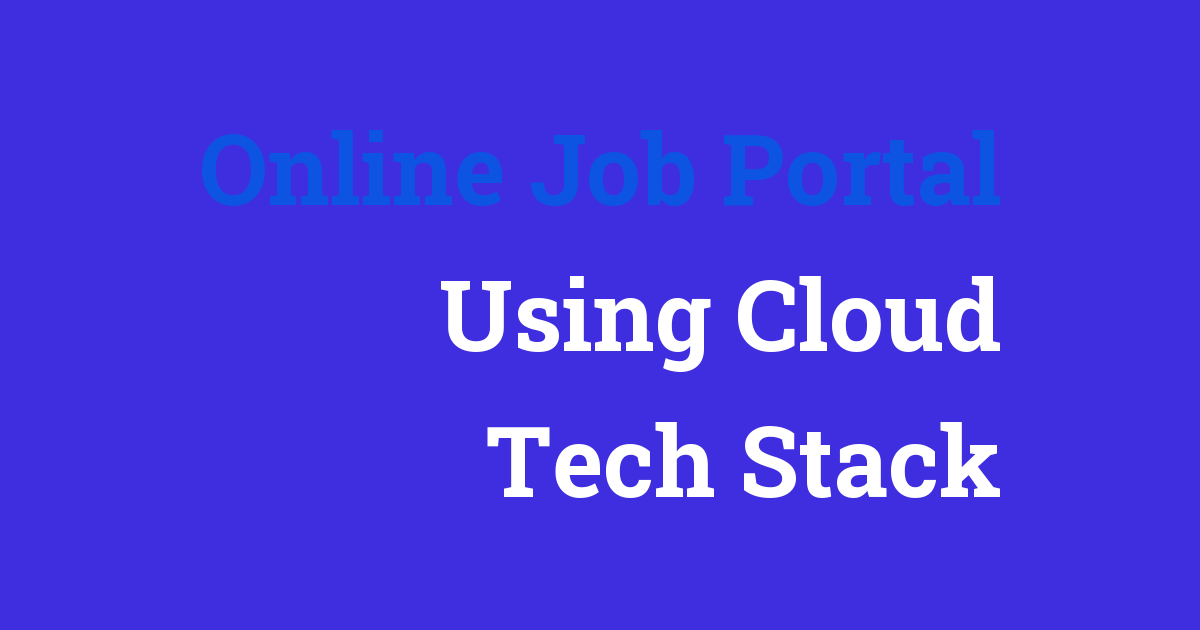Revamp your online job portal by integrating with a powerful cloud technology stack.
Online Job Portal Using Cloud Tech Stack
Introduction:
In today’s digital age, the job market is becoming more competitive than ever. With the rise of technology, job seekers are turning to online job portals to find employment opportunities. These platforms offer a convenient way for individuals to search for job openings and for employers to connect with potential candidates. However, many existing online job portals face issues such as slow performance, limited storage capacity, and lack of scalability. To address these challenges, implementing a cloud-based tech stack can provide a solution to enhance the efficiency and effectiveness of online job portals.
Problem Statement:
The traditional job portals often struggle with slow response times, especially during peak traffic hours. The existing systems also have limited storage capacity, making it difficult to handle a large amount of data. Additionally, these portals lack scalability, which can hinder their ability to accommodate a growing user base. These issues can lead to a poor user experience and ultimately impact the success of the platform.
Existing System:
The current job portals are typically hosted on on-premise servers, which can be costly to maintain and upgrade. These servers have limited storage capacity and processing power, making it challenging to handle a high volume of traffic. As a result, users may experience slow loading times and system crashes, leading to frustration and dissatisfaction.
Disadvantages:
Some of the disadvantages of the existing system include:
- Limited storage capacity
- Slow performance
- Lack of scalability
- High maintenance costs
Proposed System:
The proposed system involves implementing a cloud-based tech stack to address the limitations of the existing job portals. By leveraging cloud technologies such as Amazon Web Services (AWS) or Microsoft Azure, the job portal can benefit from increased storage capacity, improved performance, and enhanced scalability. This architecture allows for on-demand resource allocation, ensuring that the platform can handle peak traffic loads efficiently.
Advantages:
Some of the advantages of the proposed cloud-based system include:
- Increased storage capacity
- Improved performance
- Enhanced scalability
- Cost-effectiveness
Features:
The key features of the online job portal using a cloud tech stack include:
- Advanced search functionality
- Real-time job alerts
- Customized user profiles
- Integration with social media platforms
- Secure payment gateways
Conclusion:
In conclusion, implementing a cloud-based tech stack for an online job portal can offer significant benefits in terms of performance, scalability, and cost-effectiveness. By migrating to the cloud, job portals can overcome the limitations of traditional on-premise systems and provide users with a seamless and efficient experience. This modern architecture is essential for staying competitive in the rapidly evolving digital landscape and meeting the demands of today’s dynamic job market.

